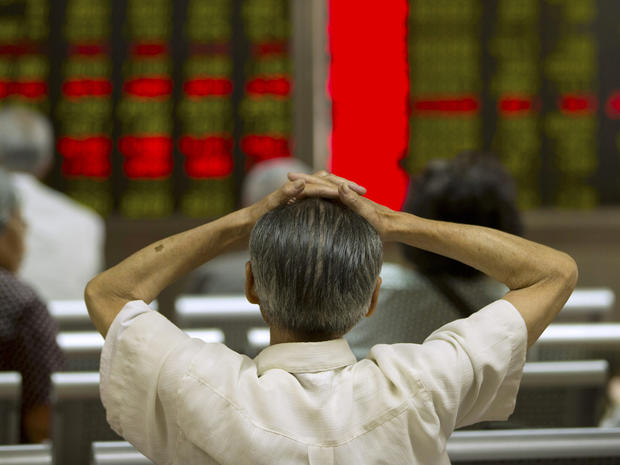U.S. stocks drop in afternoon trading
U.S. stocks took a breather on Friday, ending a roller-coaster week for investors.
Stocks fell heavily in the first two days of trading this week on concerns about the health of China's economy. The market then rebounded sharply over the next two days as investors decided the sell-off was overdone.
"People are taking a little bit of a pause," said Paul Springmeyer, senior portfolio manager at the Private Client Reserve at U.S. Bank. "We're finally winding down here where maybe we're seeing more rational behavior."
The Dow Jones industrial average fell 12 points, or under 1 percent, to close at 16,643, while the Standard & Poor's 500 ended the day largely flat at 1,989. The Nasdaq composite added 15 points, or 0.3, to 4,828.
Despite recovering their losses from earlier in the week, stocks are still on course for their worst monthly performance in more than three years. The S&P 500 is down 5.6 percent in August, and the Dow is down 5.8 percent.
Markets have been volatile since China decided to weaken its currency earlier this month. A move that investors interpreted as an attempt to bolster a sagging economy.
Traders are also jittery about the outlook for interest rates. The Federal Reserve has signaled it could raise its key interest rate for the first time in nearly a decade later this year.
The recent market turmoil has thrown into doubt expectations for a rate increase next month, with most economists now saying it's off the table for now.
Federal Reserve Vice Chairman Stanley Fischer said Friday that before the recent turbulence in financial markets, there was a "pretty strong case" for starting to hike rates in September. But he added that the Fed is watching how events unfold following the surprise announcement by the Chinese that they plan to devalue their currency.
Eight of the 10 sectors in the S&P 500 fell, with utilities stocks sliding the most. The sector fell 2.6 percent. Energy stocks gained the most, climbing 1.8 percent as the price oil jumped for a second day.
Freeport-McMoRan rose 2.3 percent on news that activist investor Carl Icahn took an 8.5-percent stake in the mining company as it cuts costs due to declining copper prices. The stock rose 21 cents to $10.40, adding to a strong gain on Thursday when the company said announced cost cuts and lower spending in response to declining copper prices.
Big Lots surged 16 percent after the discount retailer reported better-than-expected second-quarter earnings. It also boosted its full-year outlook. The stock rose $6.91 to $48.93.
Investors weighed mixed snapshots of how consumers are faring. The Commerce Department said consumers increased their spending 0.3 percent in July, as wages and salaries made their biggest jump in eight months. Separately, the University of Michigan's latest consumer sentiment index fell to 91.9 this month from 93.1 in July. Even so, the survey also found that Americans remain confident about the U.S. economy and their personal finances.
Germany's DAX fell 0.2 percent, while France's CAC-40 rose 0.4 percent. Britain's FTSE 100 gained 0.9 percent.
Japan's benchmark Nikkei 225 index climbed 3 percent, while South Korea's Kospi rose 1.6 percent. Hong Kong's Hang Seng swung into a loss in the final hour of trading, dropping 1 percent. The Shanghai Composite Index in mainland China rose 4.8, adding to its 5.3 percent gain Thursday, its first increase in six days. During the previous five days, it had shed nearly 23 percent.
U.S. government bonds rose, pushing down the yield on the benchmark 10-year Treasury note to 2.17 percent from 2.18 percent on Thursday. The dollar rose to 121.29 yen from 121.12 in late trading Thursday. The euro fell to $1.1203 from $1.1242.
Benchmark U.S. crude rose $2.64, or 6.3 percent, to $45.23 a barrel in New York. The contract posted its biggest one-day gain in six years on Thursday, leaping $3.96, or 10.3 percent, to $42.56 a barrel.
